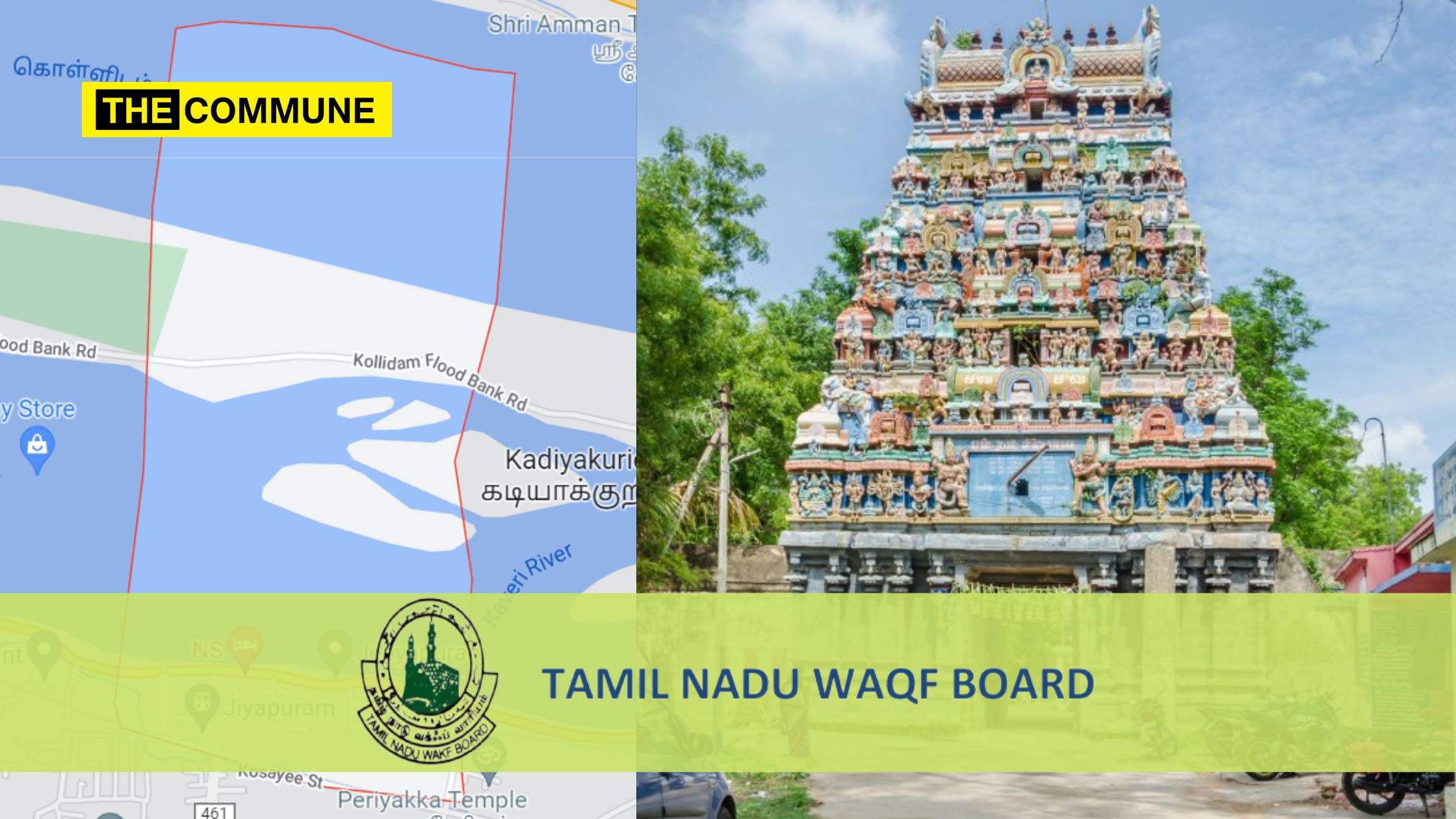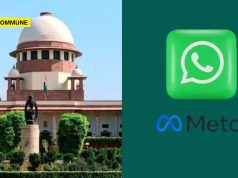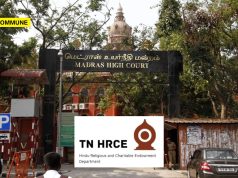
A pall of gloom has descended over Thiruchendurai village in Tiruchirapalli district, as the Tamil Nadu Waqf Board has reportedly claimed the entire village, including the temple lands, as its property.
Tamil Nadu Waqf Board
Tamil Nadu Waqf Board is a statutory body established under the Waqf Act 1954 that supervises and manages Waqf institutions and administers Waqf properties.
Waqf properties are those movable and immovable properties dedicated by a person professing Islam for any purpose recognised by Muslim law as pious, religious or charitable.
How Thiruchendurai villagers discovered this claim
According to a report by Tamil daily Dinamalar, one Rajagopal of Mullikarupur, who owns agricultural land in Thiruchendurai village, agreed to sell 1 acre 2 cents of his land to one Rajarajeshwari. He went to the Joint III Sub-Registrar office in Trichy to arrange the purchase deed for ₹3.5 lakhs and get it registered.
However, the sub-registrar told him that the land could not be registered as it belonged to the Tamil Nadu Waqf Board and that he had to get a ‘No Objection Certificate’ from the state Waqf Board office in Chennai to sell the land.
When Rajagopal asked why he needed a NOC from the Waqf Board to sell land he purchased in 1992, the sub-registrar reportedly told him that this is the procedure for deeding any land in Tiruchendurai village.
The Waqf Board has sent a letter to the Registration Department along with documents stating that the entire village belongs to them and that those who come to register a deed for land in the village should get an NOC from them.
He was also shown a copy of the 250-page Waqf Board letter. In that letter, the Waqf Board has said that tens of thousands of acres of land all over Tamil Nadu are theirs.
Rajagopal later explained his ordeal to the people of Thiruchendurai village, who are now concerned about the Waqf Board’s takeover of their lands.
They have noted that when they already have the revenue department documents, including patta, chitta, adangal, revenue ‘A’ registration, and encumbrance certificate, how can the Waqf Board claim Thiruchenthurai village as its property?
The issue was brought to the notice of the District Collector, who has reportedly assured to look into the matter and decide.
Hindu-Majority Village
BJP leader Allur Prakash from Trichy noted that Thiruchendurai village is a picturesque agricultural village located on the south bank of the Cauvery River, where most of the people are Hindus. “What is the relationship between the Waqf Board and Thiruchenthurai Village?” he asked in the report.
“There is the Manendiyavalli Sametha Chandrasekhara Swamy temple, which has a ‘paadal petra sthalam. Various documents and evidence suggest that this temple is 1,500 years old. The temple owns 369 acres of land inside and outside Tiruchenthurai village. Does this temple land also belong to the Waqf Board?” Prakash was quoted saying.
Lord Renganathar of the Srirangam Temple is believed to wake up in Tiruchenthurai village during the Adibrahmotsava festival of Panguni month.
“When an individual of the village holds the land documents, how can the Waqf Board declare it as its property without any evidence? Even if the Waqf Board has issued a letter claiming the lands to be its own, how can the higher officials of the Registration Department order not to register the deed without verifying the claims of the Waqf Board?”
Registration Department officials
For their part, the Tamil Nadu Government Registration Department officials have said there are encroachments on water bodies, Waqf Board properties, and temple properties. The department claims to have received information that, through forged documents, unrelated persons were holding these lands, and many were embroiled in legal disputes.
“The court criticised the government and directed it to take appropriate steps to recover the assets. Based on that, in 2016, the government took measures to recover the assets. Following this move, the Waqf Boards recovered their properties throughout Tamil Nadu. The Board sorted out what it found to be its assets and notified the department of them. They also asked the registration department to stop any arrangement for the registration of deeds regarding certain properties. It is on this basis that entire villages, including Thiruchendurai and Kadiakurichi, have been identified as Waqf Board properties.”, Registration Department officials were quoted saying in the report.
Officials also noted that they will speak to the Secretary of the Minority Welfare Department and the Chairman of the Waqf Board.
They admitted that it is absurd to refer to Thiruchendurai temple and its lands as Waqf Board properties and that they have been facing problems when deed registrations have to be denied based on the Waqf Board’s letter.
Apart from villages like Thiruchenthurai and Kadiakurichi, regions in and around Chennai also have this problem, where the Waqf Board has claimed lands.
(With inputs from Dinamalar)
Click here to subscribe to The Commune on Telegram and get the best stories of the day delivered to you personally.




